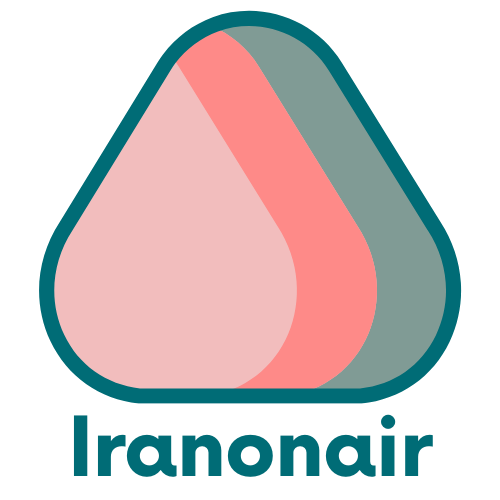Creating effective professional cleaning service quotes is a crucial skill for any cleaning business looking to impress potential clients and secure contracts in today’s competitive market. As the cleaning industry continues to experience significant growth—with household cleaning services expanding by 20% annually and commercial cleaning projected to increase by 50% by 2027—mastering the art of quotation preparation has never been more important. A well-crafted quote not only outlines your services and costs but also serves as a powerful marketing tool that showcases your professionalism and attention to detail.
Understanding client requirements
The foundation of any successful cleaning service quote begins with thoroughly understanding what the client needs. Cleaning requirements vary significantly between clients, and taking the time to understand their specific expectations is essential. Many successful cleaning businesses have discovered that offering digital marketing solutions through https://www.criterioselecta.it/ and similar platforms can enhance their customer acquisition processes while streamlining quote preparation.
Conducting initial client consultations
Initial consultations provide a critical opportunity to gather detailed information about client expectations. During these meetings, ask targeted questions about cleaning frequency, specific areas requiring attention, and any special requirements. Taking notes during this stage ensures you capture all relevant details for creating an accurate and comprehensive quote that addresses all client concerns.
Identifying specific cleaning needs and expectations
Each client has unique cleaning needs based on their property type, usage patterns, and personal preferences. Commercial clients might prioritise sanitisation of high-traffic areas, while domestic clients may focus on deep cleaning specific rooms. Understanding these nuances allows you to tailor your service offerings accordingly, demonstrating your commitment to meeting their individual requirements rather than offering generic solutions.
Performing comprehensive site assessments
After understanding client requirements through consultation, conducting a thorough site assessment is the next crucial step. This hands-on evaluation provides the concrete details needed to develop an accurate quote that accounts for all variables affecting service delivery and pricing.
Measuring spaces and evaluating surface types
Accurate measurements of the areas to be cleaned are essential for calculating labour hours and material costs. Different surface types require specific cleaning methods and products, directly impacting your pricing structure. For instance, hardwood floors need different treatment than carpet or tile, and delicate surfaces may require specialised, more expensive cleaning solutions that should be accounted for in your quote.
Documenting special considerations and access issues
During your site assessment, note any factors that might affect service delivery, such as limited access points, security procedures, or environmental considerations. These elements can significantly impact cleaning time and resources needed. Documenting these special considerations demonstrates thoroughness and prevents unexpected challenges during service delivery that could affect client satisfaction or your profit margins.
Developing detailed service breakdowns
Once you’ve gathered comprehensive information about client needs and conducted a thorough site assessment, creating a detailed breakdown of services becomes possible. This transparency builds trust and helps clients understand exactly what they’re paying for.

Creating itemised service lists
A detailed, itemised list of cleaning services helps clients understand the scope of work covered by your quote. Specify which areas will be cleaned, what specific tasks will be performed in each area, and estimated time requirements. This level of detail eliminates misunderstandings and sets clear expectations for both parties, reducing the likelihood of disputes after service delivery.
Establishing transparent pricing structures
Transparency in pricing is crucial for building trust with potential clients. Break down your costs clearly, showing how pricing relates to specific services, frequency, and special requirements. Avoid hidden fees or vague cost categories that might raise suspicion. A clear pricing structure not only builds credibility but also makes it easier for clients to compare your services with competitors, highlighting the value you offer.
Establishing clear payment terms
Well-defined payment terms protect both your business and your clients by setting clear expectations about financial aspects of your service relationship. Professional quotes always include comprehensive payment information that leaves no room for confusion.
Setting payment schedules and methods
Clearly outline when payments are due and what payment methods you accept. For regular cleaning services, specify whether payment is expected before or after service delivery, and whether you offer monthly, bi-weekly, or other payment schedules. Including details about accepted payment methods—such as credit cards, bank transfers, or online payment systems—makes it easier for clients to plan their finances accordingly.
Outlining cancellation and refund policies
Transparent cancellation and refund policies prevent misunderstandings and disputes. Specify notice periods required for cancellations, any applicable cancellation fees, and circumstances under which refunds might be issued. Clear policies demonstrate professionalism and protect your business from revenue loss due to last-minute cancellations or scheduling changes.
Showcasing company credentials
Establishing credibility is essential for convincing potential clients to choose your cleaning service over competitors. Your quote provides an excellent opportunity to highlight qualifications that set your business apart in the industry.
Highlighting professional certifications and insurance
Including information about your professional certifications, training, and insurance coverage reassures clients about your qualifications and reliability. Liability insurance is particularly important to mention, as it protects both your business and clients in case of accidents or damage during cleaning. These credentials demonstrate your commitment to professional standards and responsible business practices.
Providing client testimonials and references
Social proof significantly influences client decision-making. Including brief testimonials from satisfied clients with similar requirements can be extremely persuasive. If space allows, offer to provide references upon request. This demonstrates confidence in your service quality and gives potential clients reassurance based on the positive experiences of others.
Designing professional quote presentations
The visual presentation of your quote contributes significantly to client perceptions of your professionalism. A well-designed quote document reinforces your brand identity and makes information easily accessible to potential clients.
Creating branded quote templates
Consistent branding across all business communications, including quotes, strengthens your market presence and recognition. Develop professional templates featuring your logo, business colours, and contact information. This branding consistency extends your marketing efforts and reinforces your cleaning business identity while making your quotes instantly recognisable.
Organising information for maximum clarity
The layout of your quote should prioritise readability and logical information flow. Use clear headings, appropriate spacing, and a consistent format throughout the document. Consider how clients will navigate the information and ensure that key details like total costs, service inclusions, and payment terms are easy to locate at a glance.
Ensuring competitive yet profitable pricing
Finding the balance between competitive pricing and profitability requires careful analysis of both external market factors and internal cost structures. Strategic pricing is essential for business sustainability and growth in the cleaning industry.
Analysing market rates and competitor offerings
Research what competitors charge for similar services to ensure your pricing is competitive within your market. However, avoid the trap of competing solely on price, as this can lead to unsustainable operations. Instead, identify opportunities to differentiate your service through quality, specialisation, or additional value that justifies premium pricing where appropriate.
Calculating labour costs and profit margins
Accurate cost calculation forms the foundation of profitable pricing. Account for all expenses, including labour, cleaning supplies, equipment maintenance, transportation, insurance, and administrative costs. Add your desired profit margin to ensure business sustainability and growth potential. Regularly review these calculations to adjust for changing costs or market conditions.
Following up with potential clients
The quote submission is not the end of the sales process but rather a critical milestone. Effective follow-up strategies can significantly increase conversion rates and demonstrate your commitment to customer service.
Implementing effective communication strategies
Plan a systematic approach to following up on submitted quotes. This might include a phone call within 48 hours, followed by an email if necessary. During follow-up communications, confirm receipt of the quote, ask if there are any questions, and express your enthusiasm about the potential partnership. These touchpoints demonstrate responsiveness and keep your services top of mind.
Addressing questions and negotiating terms
Be prepared to explain any aspects of your quote that clients find unclear and to discuss potential adjustments to meet their needs or budget. Approach negotiations with flexibility while maintaining awareness of your minimum acceptable terms. This client-focused approach builds goodwill and increases the likelihood of securing the contract.
Personalising quotes for individual clients
Mass-produced, generic quotes rarely win business in the competitive cleaning industry. Personalisation demonstrates attentiveness and commitment to addressing specific client needs, significantly increasing conversion rates.
Tailoring solutions to unique client circumstances
Modify your service offerings based on the specific circumstances and preferences of each client. This might involve adjusting cleaning schedules to accommodate business hours, suggesting specialised services for particular challenges, or creating custom maintenance plans for unique environments. This tailored approach demonstrates your expertise and commitment to delivering optimal results.
Avoiding generic approaches and templates
While templates provide valuable structure, each quote should be customised with specific details relevant to the individual client. Reference particular aspects of their property, acknowledge special requirements discussed during consultations, and address their unique priorities. This level of personalisation shows potential clients that you’ve listened carefully and are genuinely interested in meeting their specific cleaning needs.

